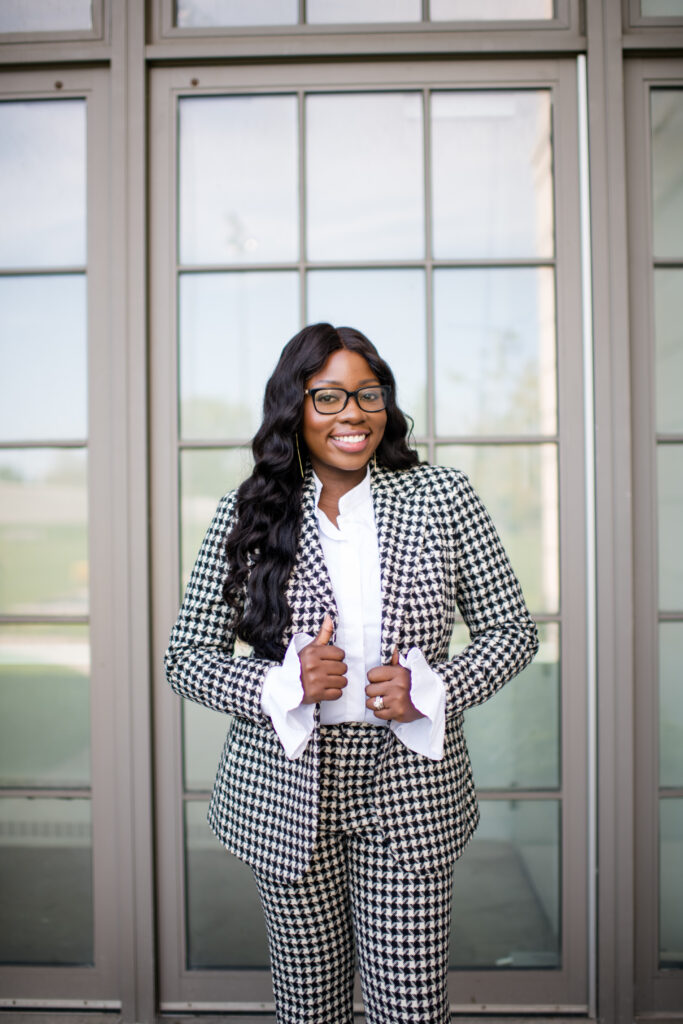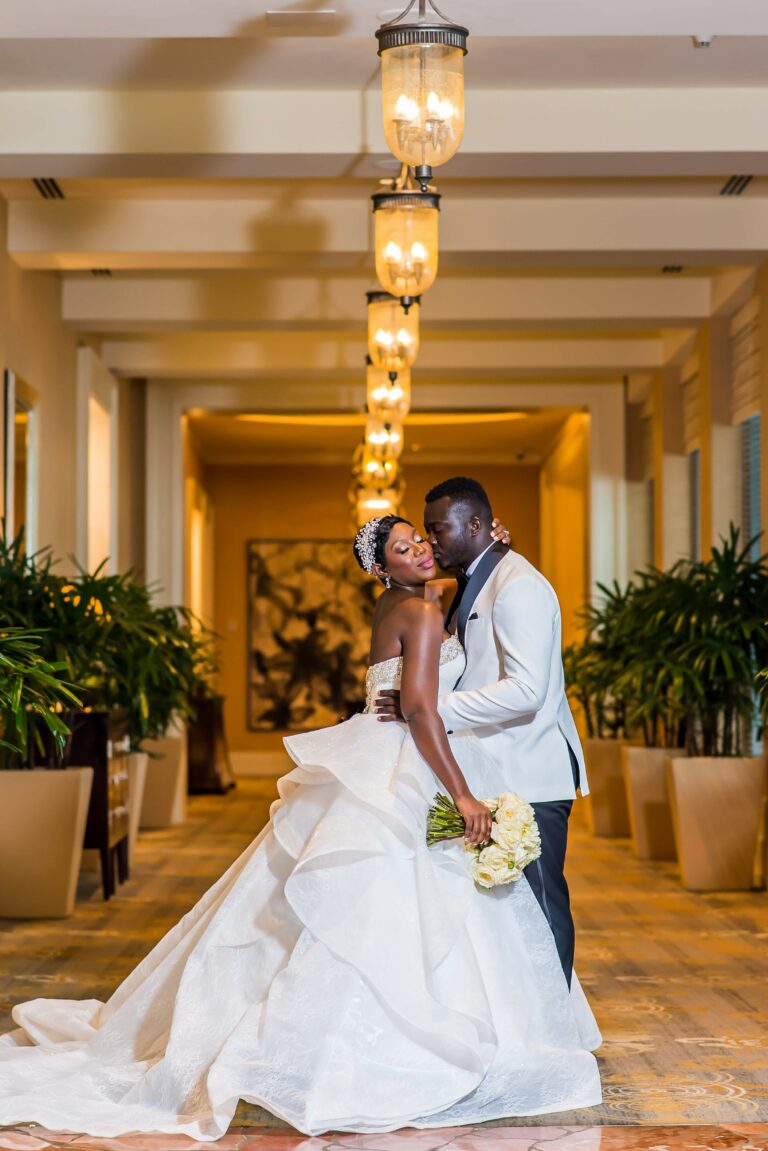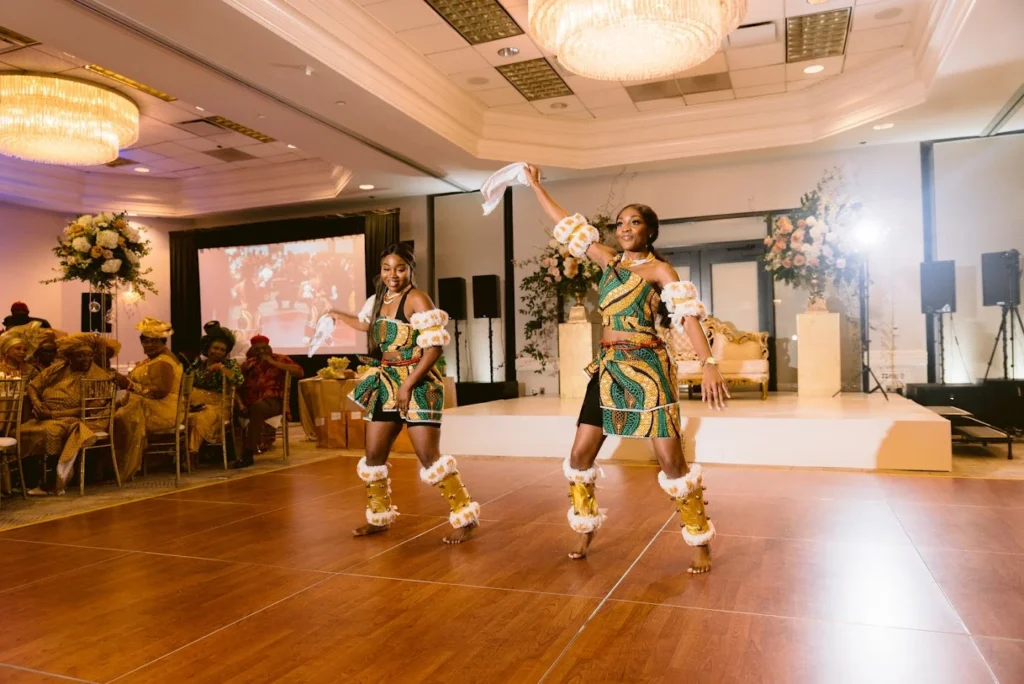
When it comes to Nigerian weddings, entertainment isn’t just a fun extra—it’s a core part of the celebration. It’s how families express joy, honor culture, and create an unforgettable experience for their guests. From captivating music to energetic performances, traditional Nigerian wedding entertainment vendors know how to set the tone for a celebration that reflects the couple’s heritage.
If you’re planning a wedding and want to infuse it with rich cultural elements that keep guests engaged, here are some of the most sought-after entertainment vendors for Nigerian weddings.
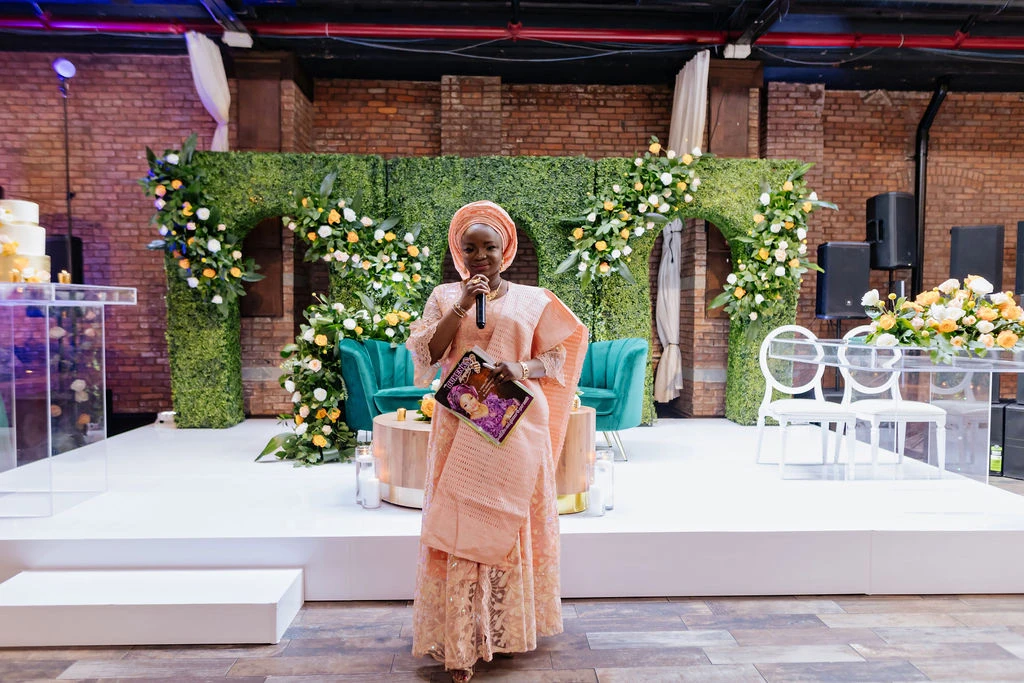
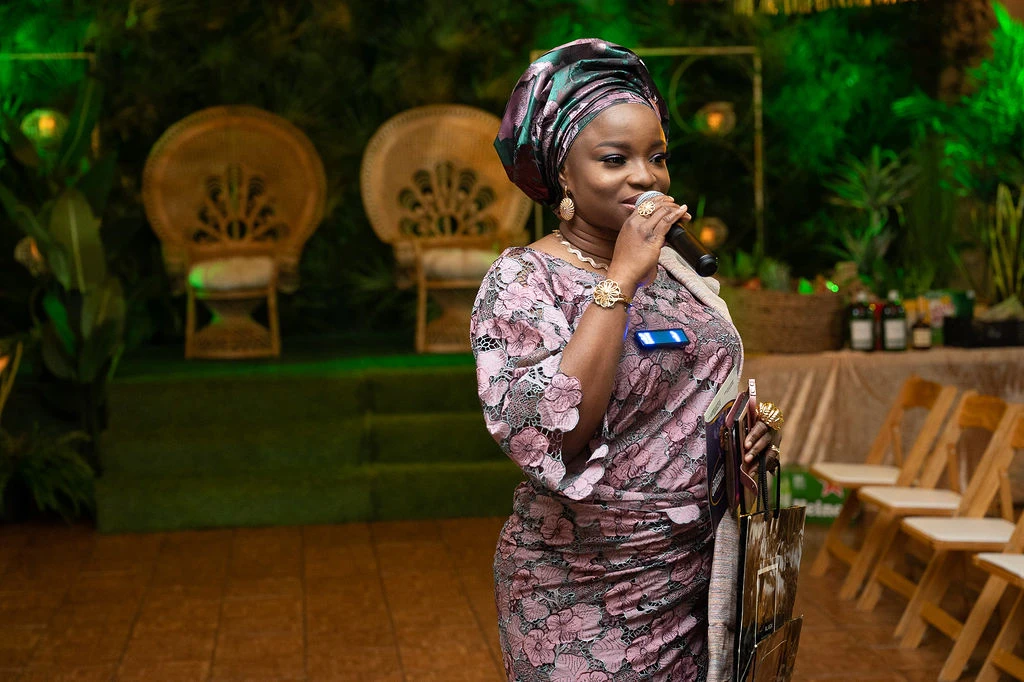
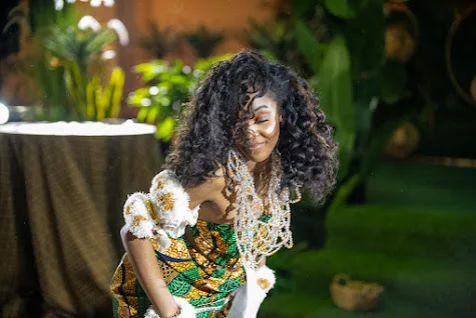
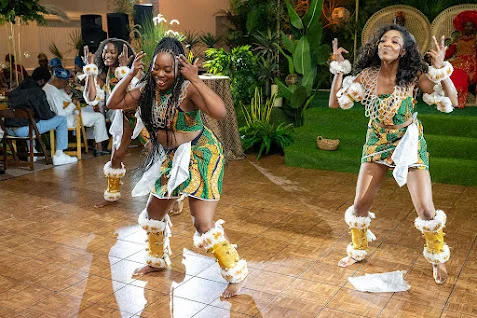
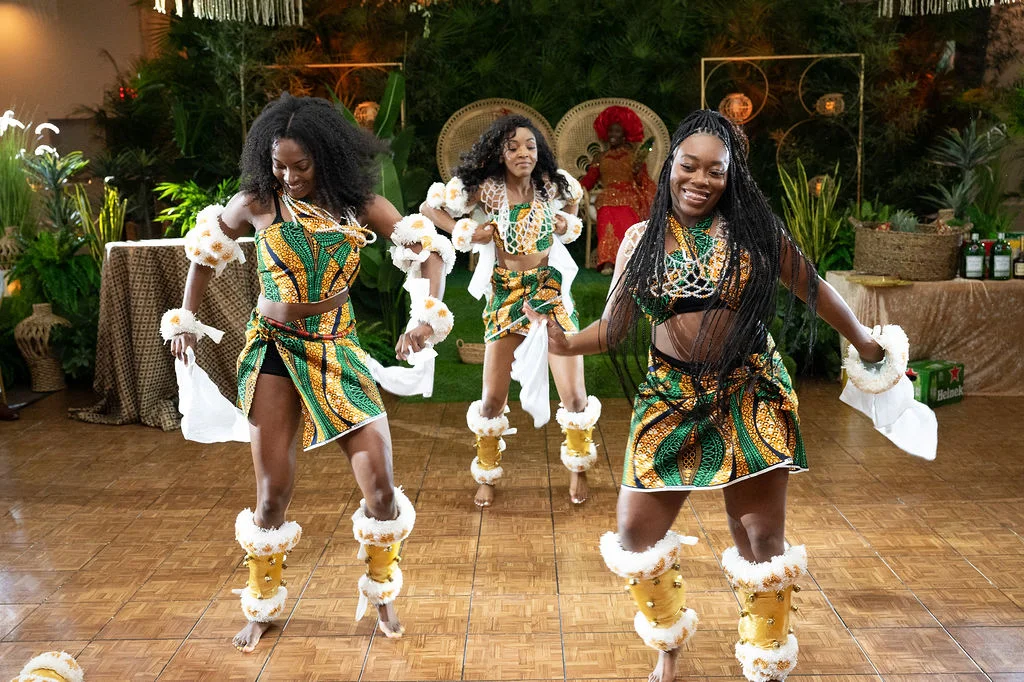
The Master of Ceremonies (MC/Compere): The Event’s Cultural Anchor
The MC—often referred to as the compere—is the heartbeat of any Nigerian wedding reception. A skilled MC does more than announce events; they guide the flow of the day, weave humor and storytelling into transitions, and keep the crowd energized from start to finish.
In traditional Nigerian weddings, MCs also serve as cultural liaisons. They often:
- Speak multiple Nigerian languages or dialects to connect with both families.
- Lead proverbs, chants, or cultural call-and-response moments.
- Facilitate key traditional rites like the bride’s entrance or prayers from elders.
Choosing an experienced MC who understands your cultural background is essential for honoring tradition and keeping the celebration lively.
Igbo Dancers: Celebrating the Bride’s Heritage with Movement
In Igbo traditional weddings, dance is a powerful form of expression. Many couples hire professional Igbo dance troupes to perform during key moments such as:
- The bride’s entrance
- Cultural dance interludes during the reception
- Special dedications to the couple or their parents
These dancers are often dressed in beautifully coordinated George wrappers, beaded accessories, and hold props like horsetail whisks. Their performances tell stories, honor ancestors, and add a striking visual element to the celebration.
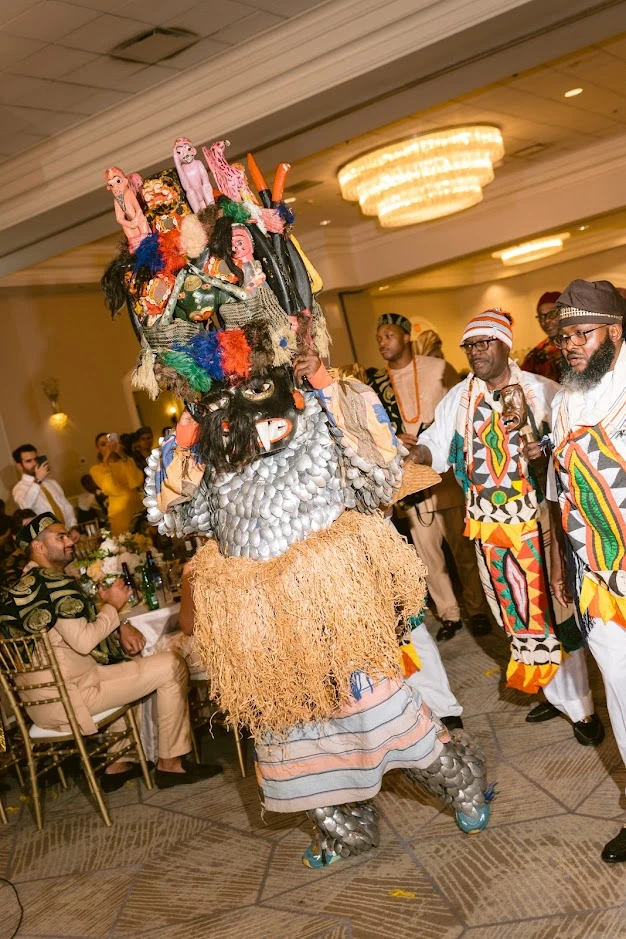
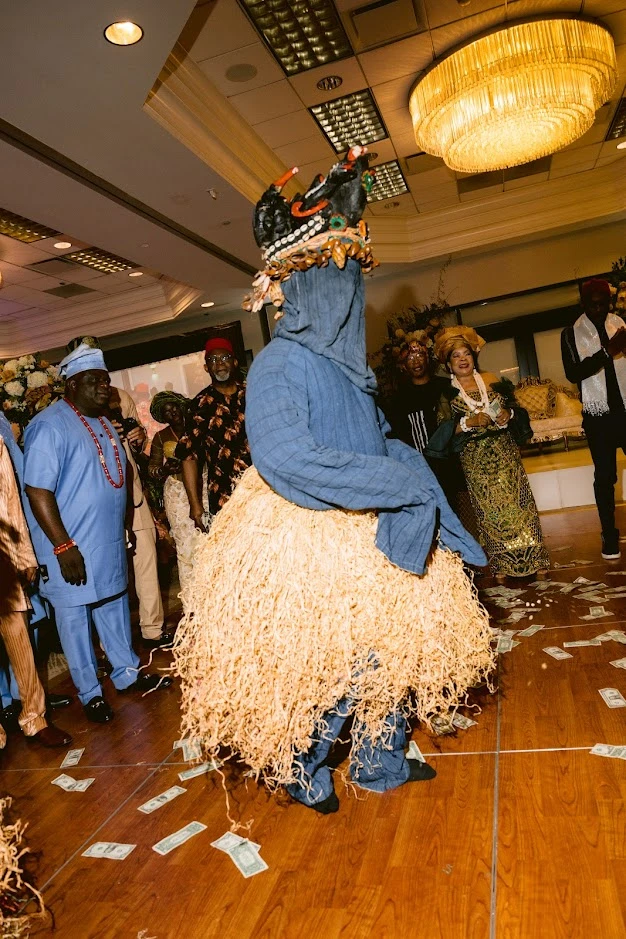
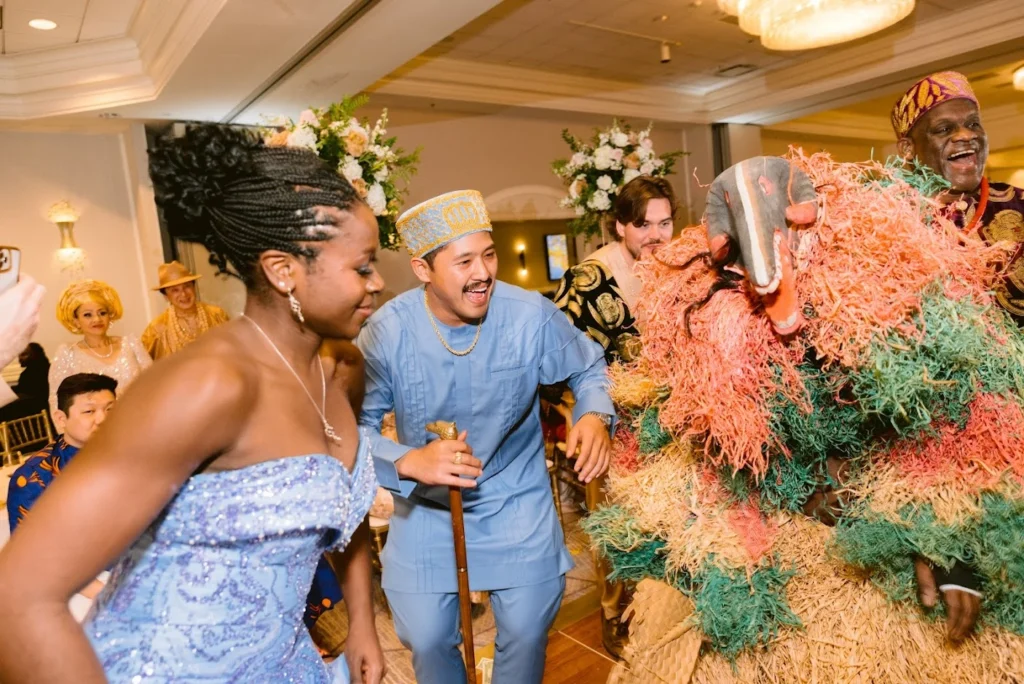
Igbo Masquerades (Mmanwu): A Cultural Spectacle of Ancestral Tradition
For those leaning deeper into tradition, the presence of masquerades at an Igbo wedding creates a cultural moment that’s both entertaining and spiritually significant. In Igbo culture, masquerades are believed to represent ancestral spirits and often make dramatic entrances accompanied by drummers.
While not every family includes this tradition, some couples—especially those in eastern Nigeria—incorporate masquerades to:
- Bless the union
- Offer symbolic protection
- Add a layer of mystery and cultural flair
It’s important to coordinate with elders and local cultural groups to ensure that the performance aligns with your community’s customs.
Yoruba Talking Drummers (Gangan): Communication Through Rhythm
No Yoruba traditional wedding is complete without the sound of the talking drum. The Gangan drum isn’t just an instrument—it’s a language. Skilled drummers can mimic speech tones and deliver praises, prayers, and even humorous commentary through their beats.
Talking drummers are often used to:
- Praise the bride and groom during their entrance
- Greet elders and important guests
- Accompany the Alaga during the engagement ceremony
Their rhythmic storytelling adds depth to the celebration and connects guests to centuries-old Yoruba musical traditions.
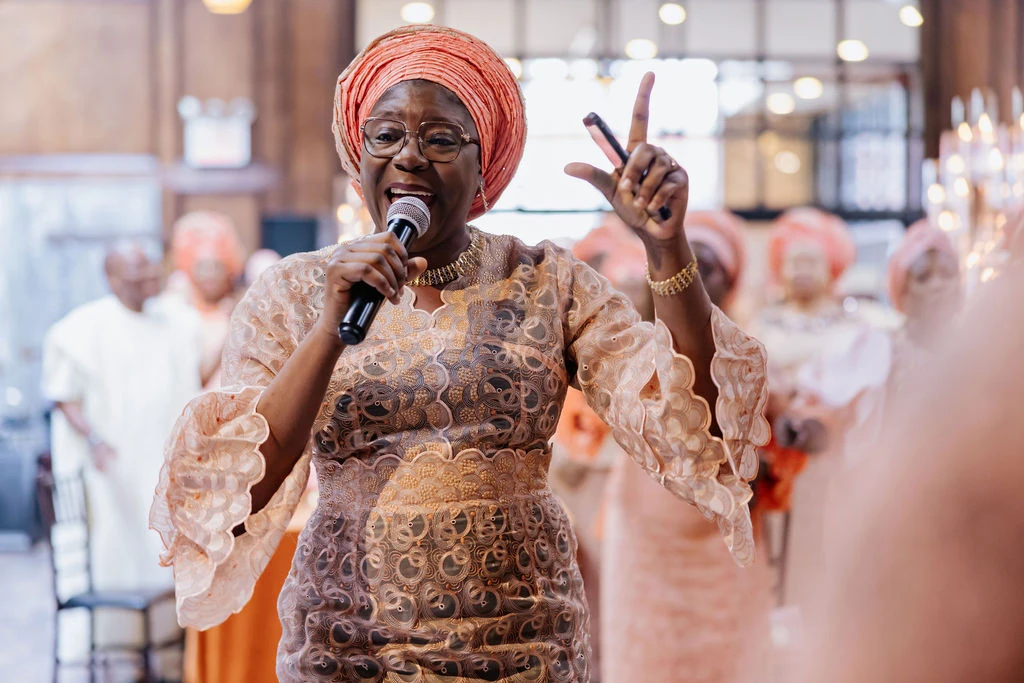
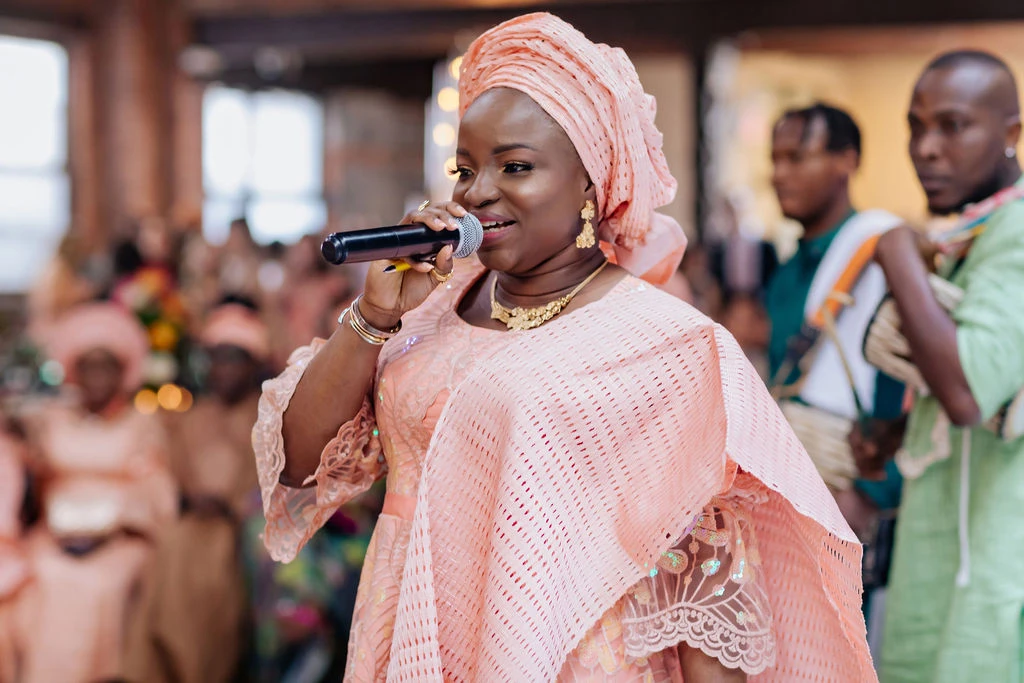
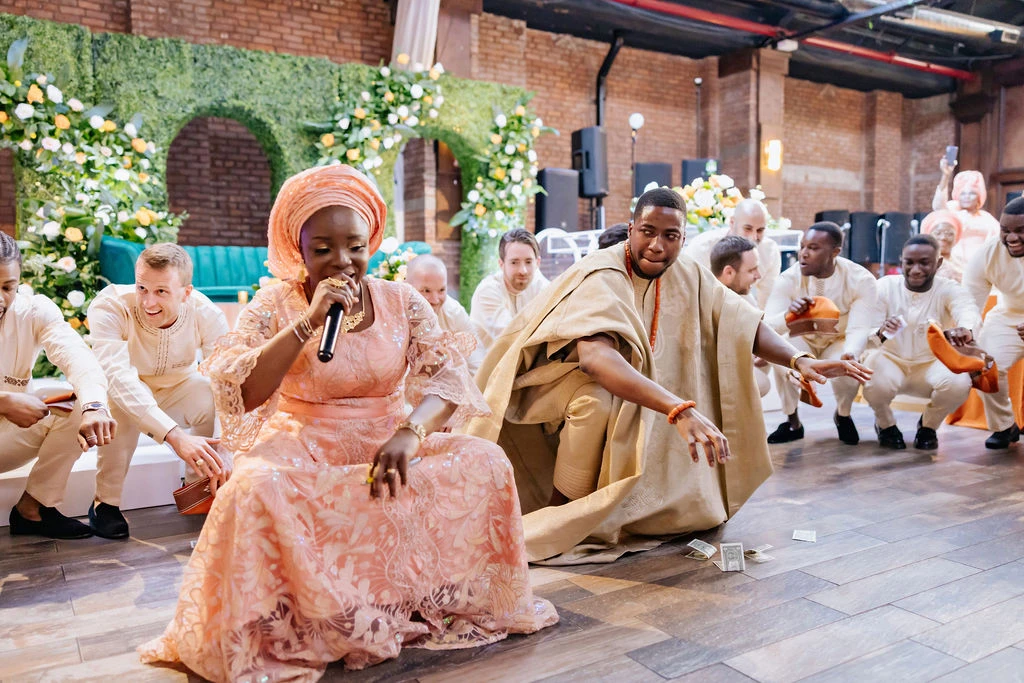
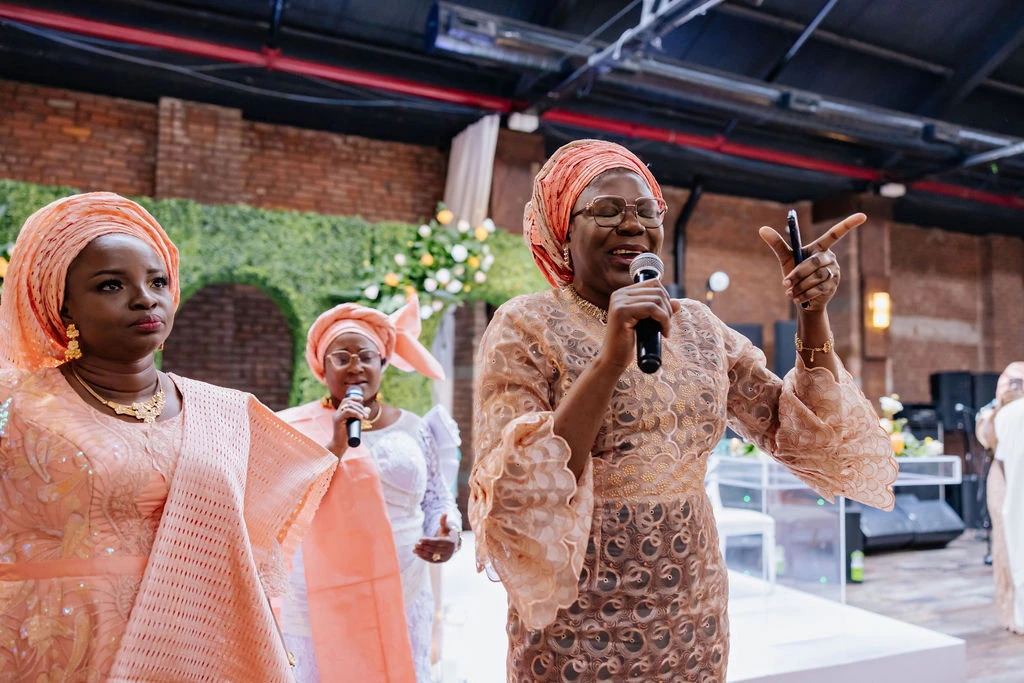
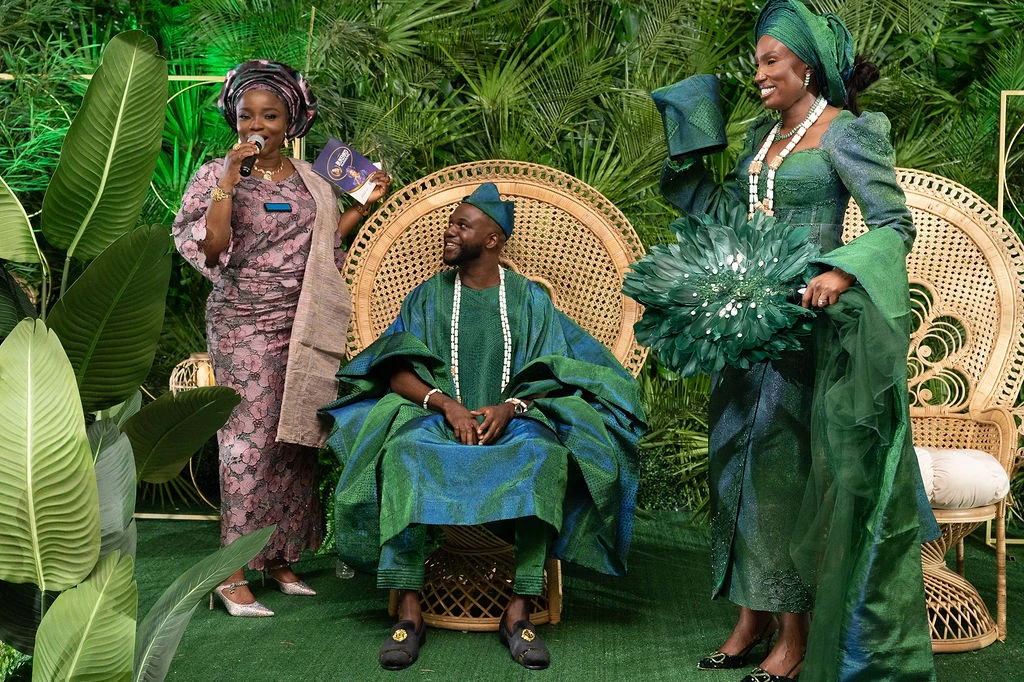
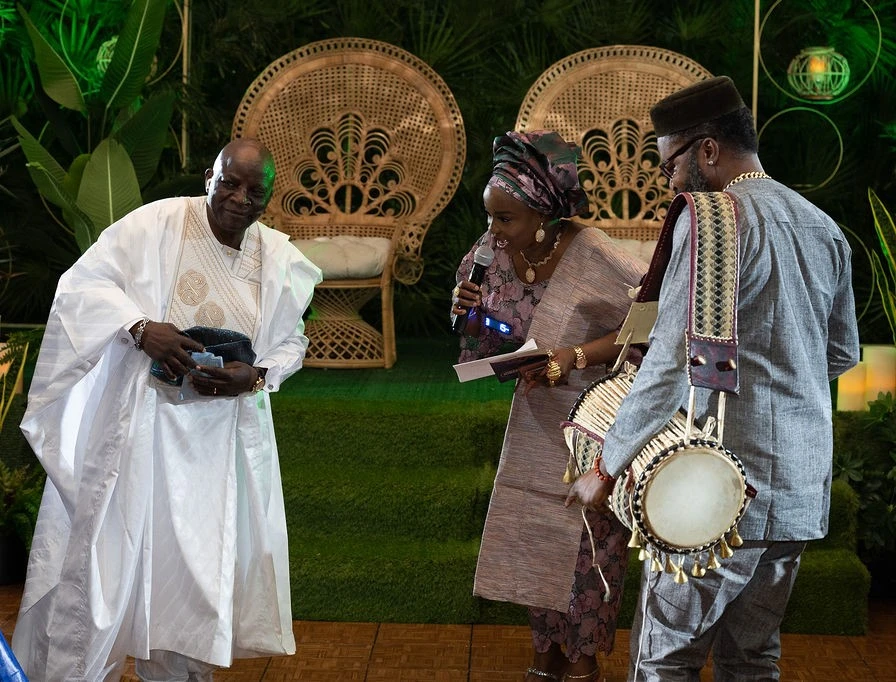
Alaga Ijoko and Alaga Iduro: Yoruba Engagement Ceremony Specialists
In Yoruba weddings, the engagement ceremony is led by two designated women: the Alaga Ijoko (for the bride’s family) and the Alaga Iduro (for the groom’s family). These women are more than MCs—they are cultural custodians who:
- Conduct the traditional rites of the introduction and dowry presentation
- Sing, pray, and direct ceremonial protocols
- Infuse humor and storytelling into the proceedings
Hiring experienced Alaga professionals ensures that your traditional engagement ceremony flows smoothly and remains culturally grounded.
Cultural Music Ensembles: Live Bands that Blend Old and New
Many Nigerian weddings feature live bands that perform traditional music genres such as:
- Highlife (popular in Igbo and South-South regions)
- Juju music (popular in Yoruba settings)
- Fuji music (loved by Yoruba-speaking communities)
- Afrobeat and Afro-juju fusions for a modern twist
These bands provide an authentic soundscape that encourages dancing and helps older guests feel right at home.
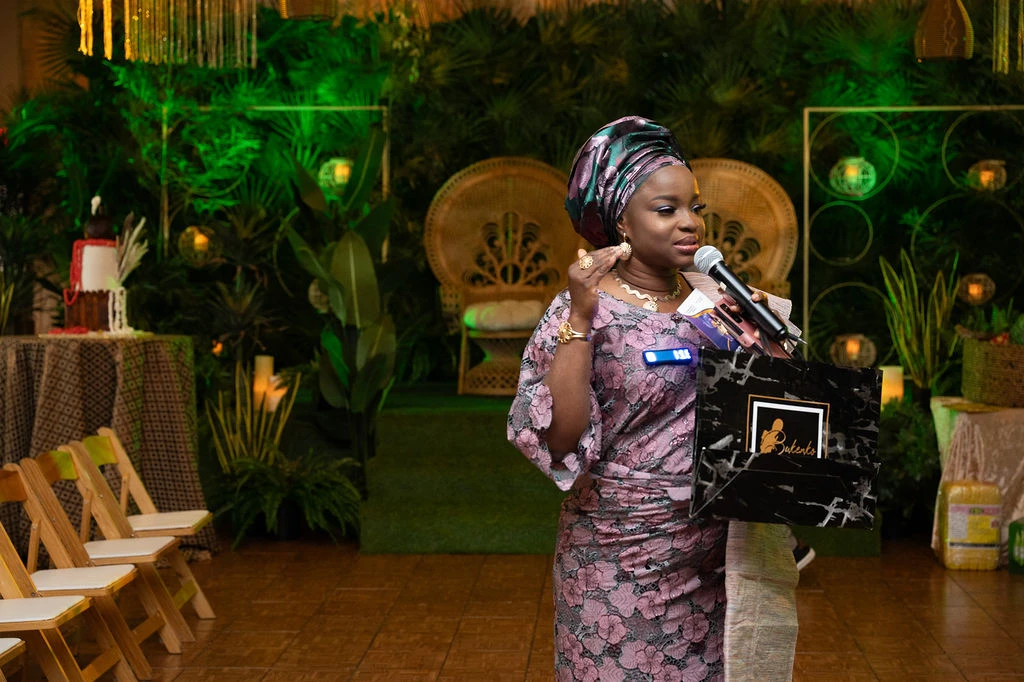
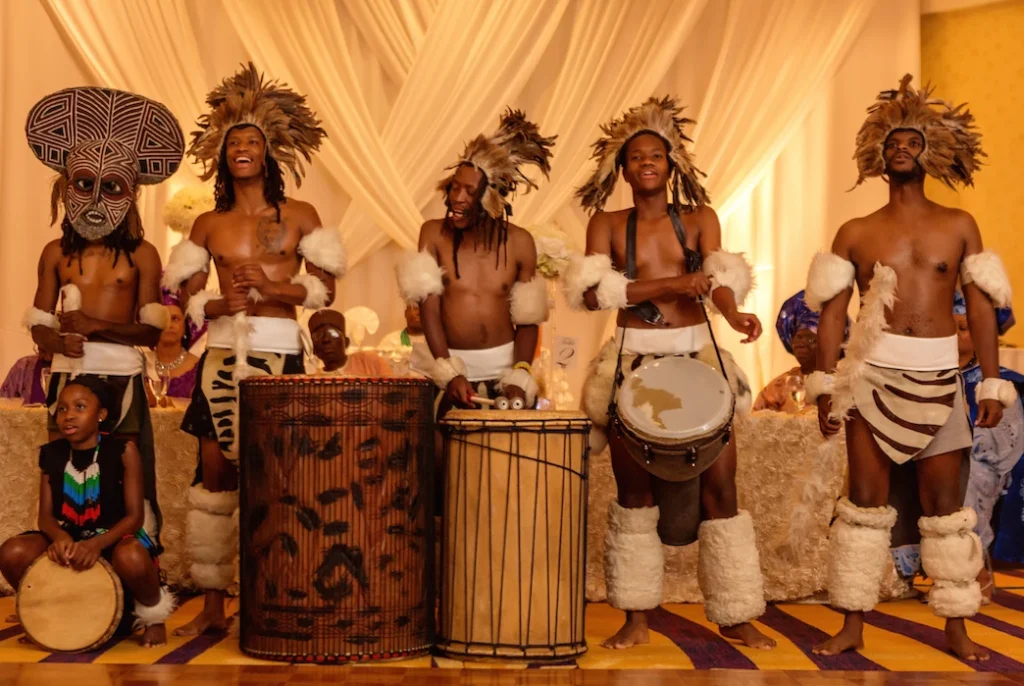
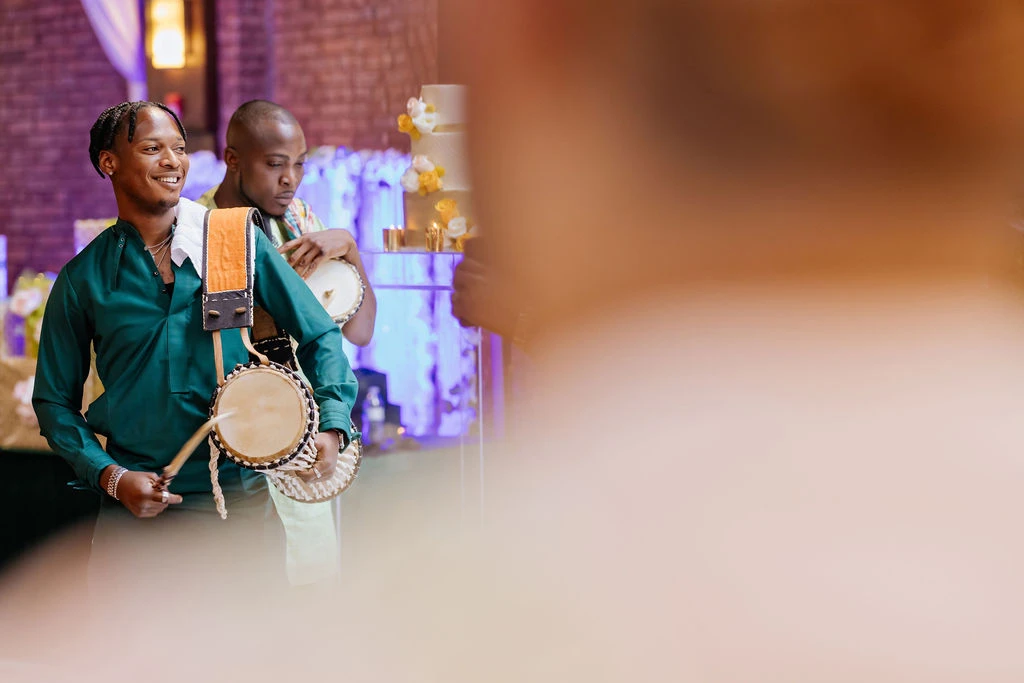
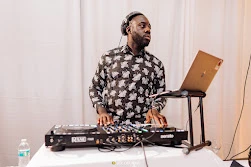
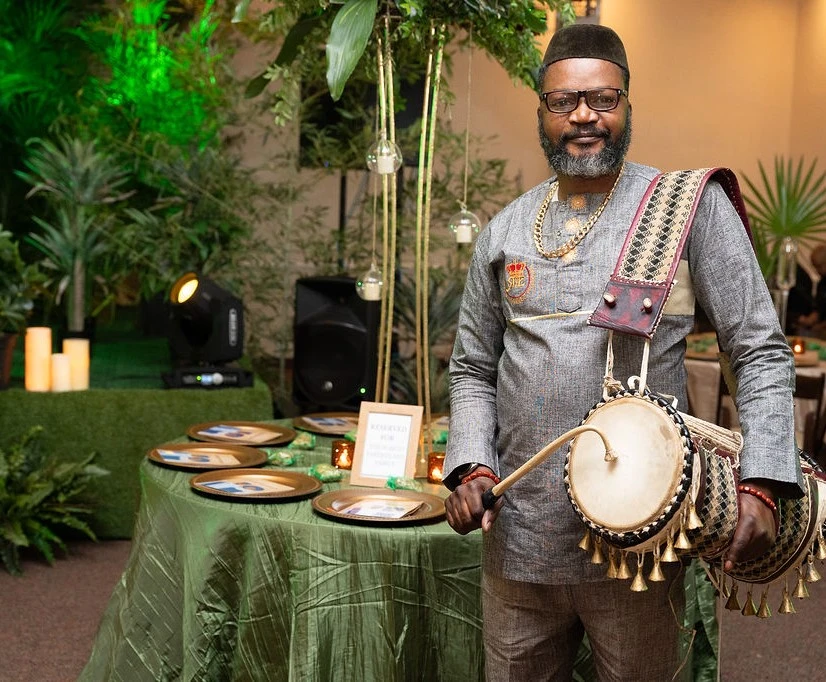

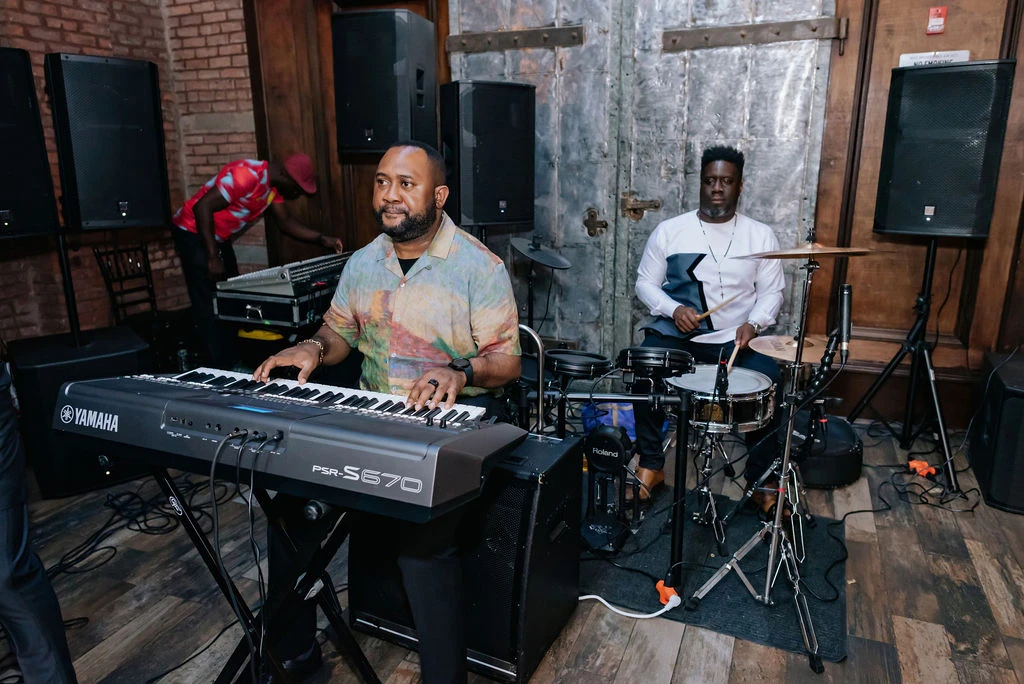
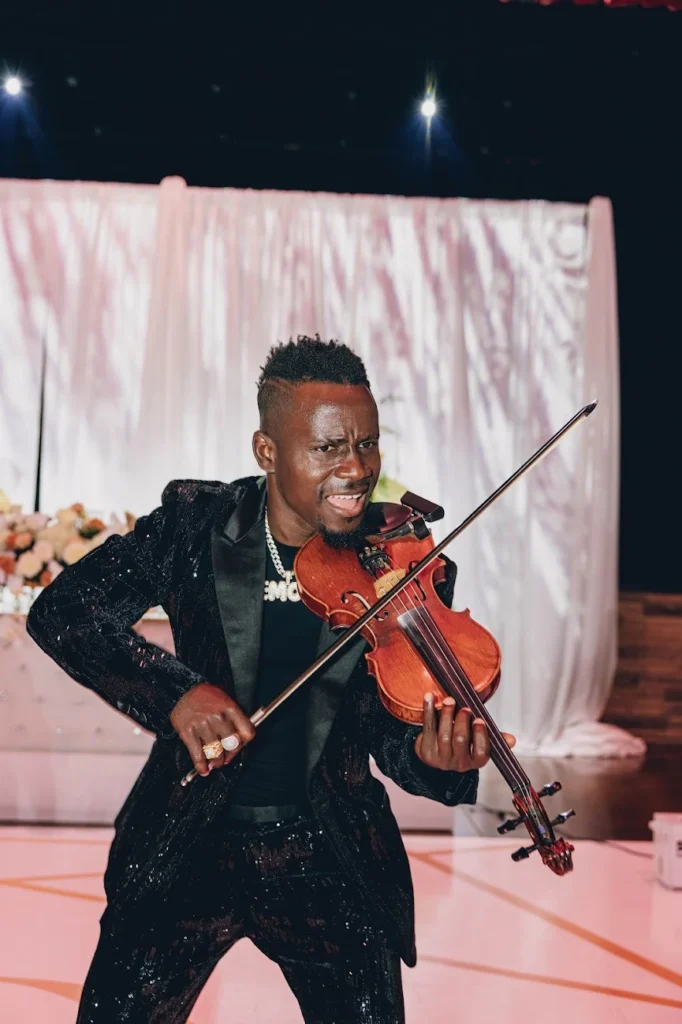
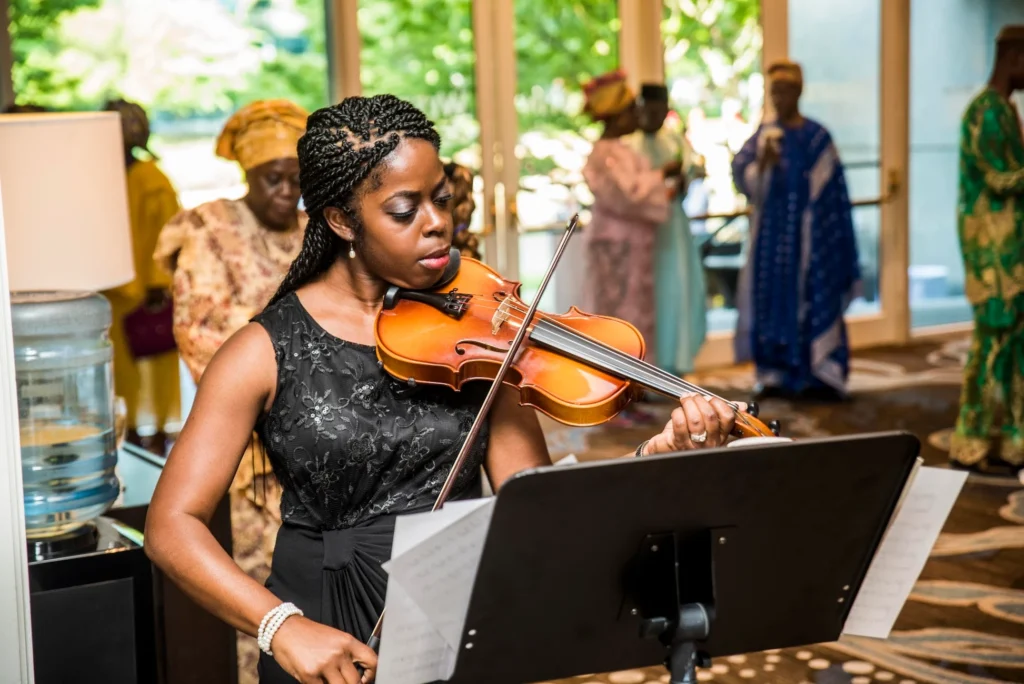
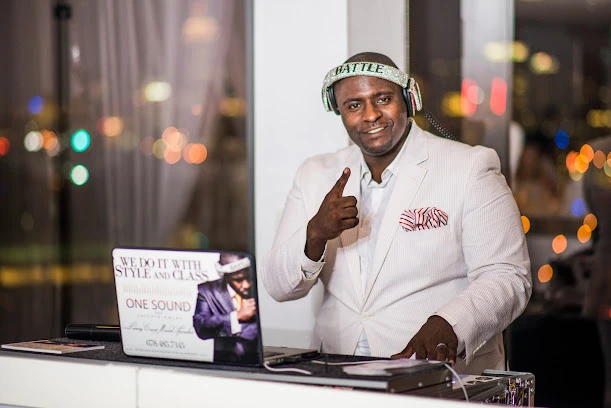
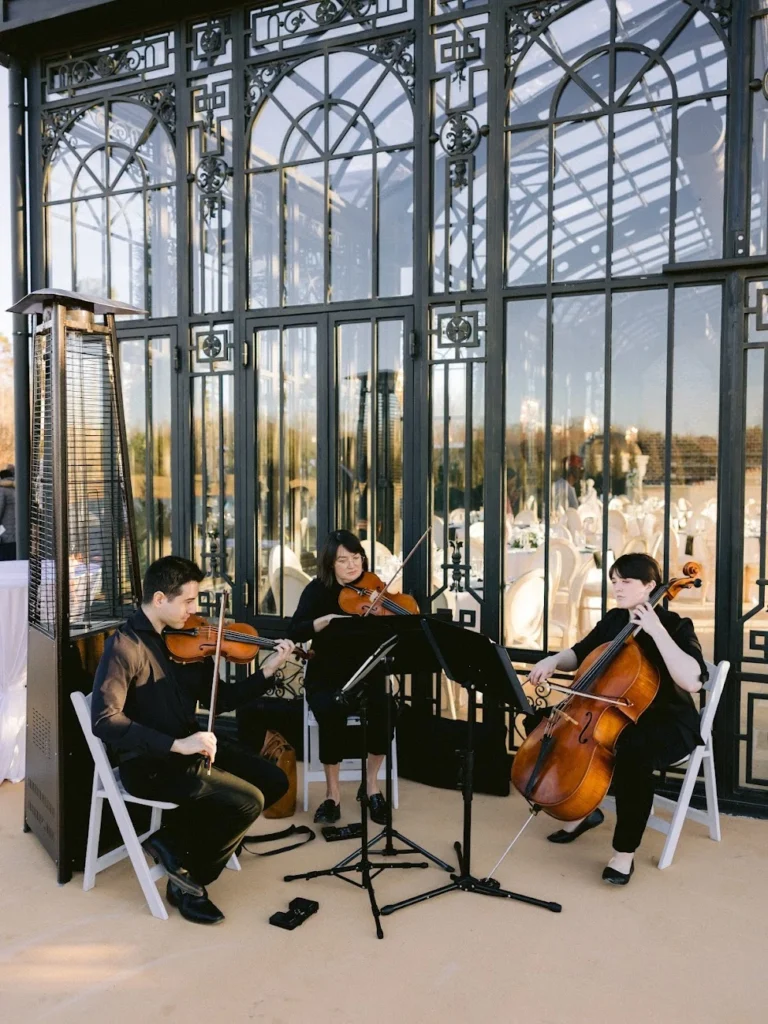
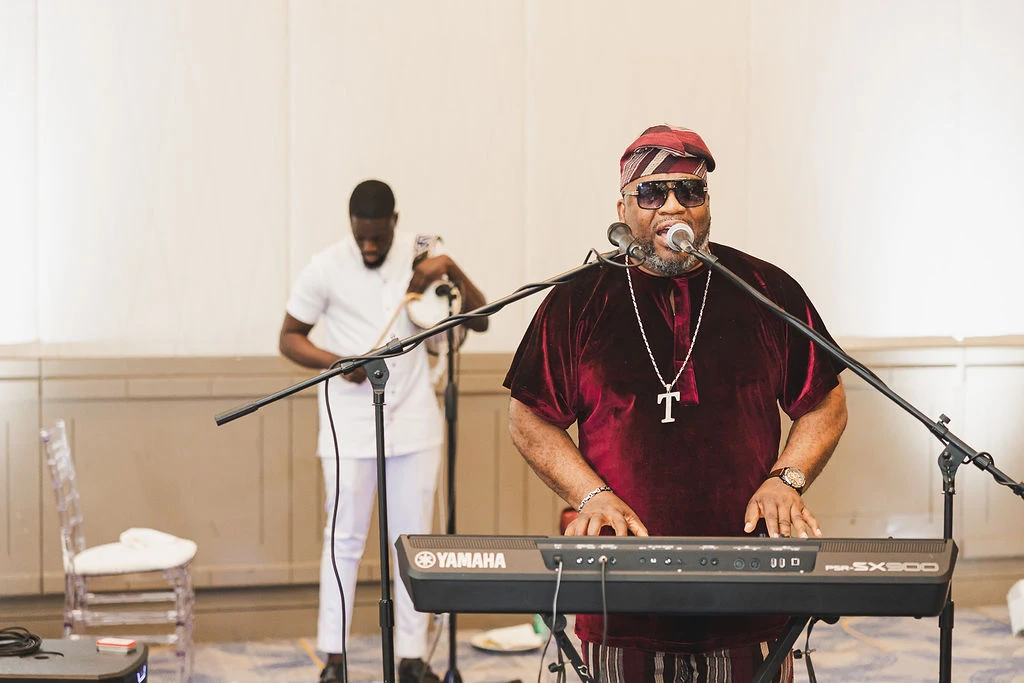
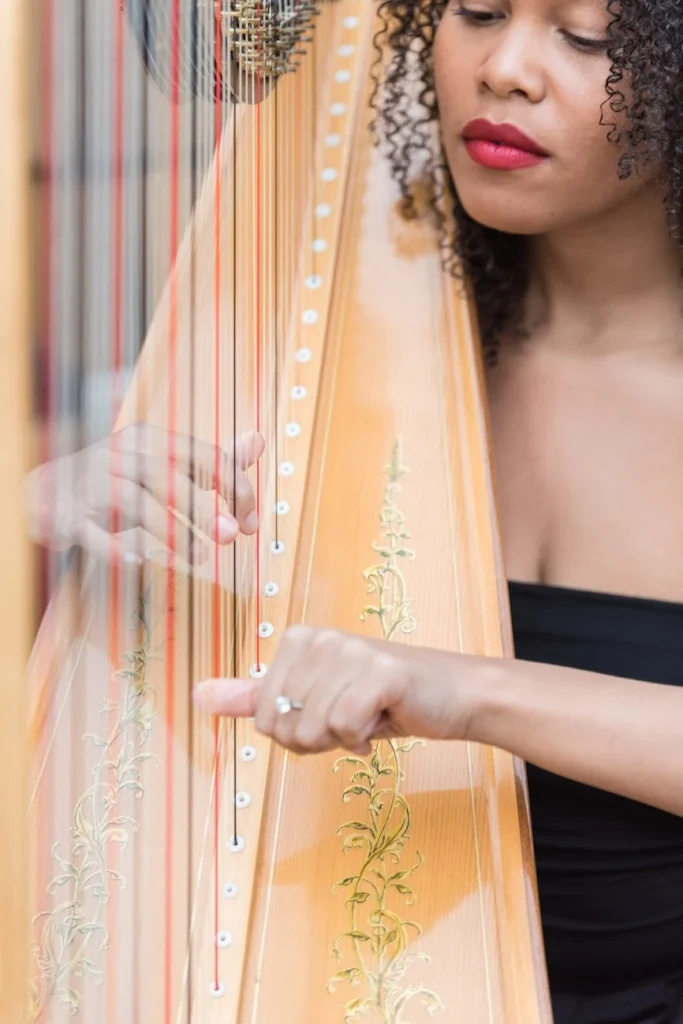
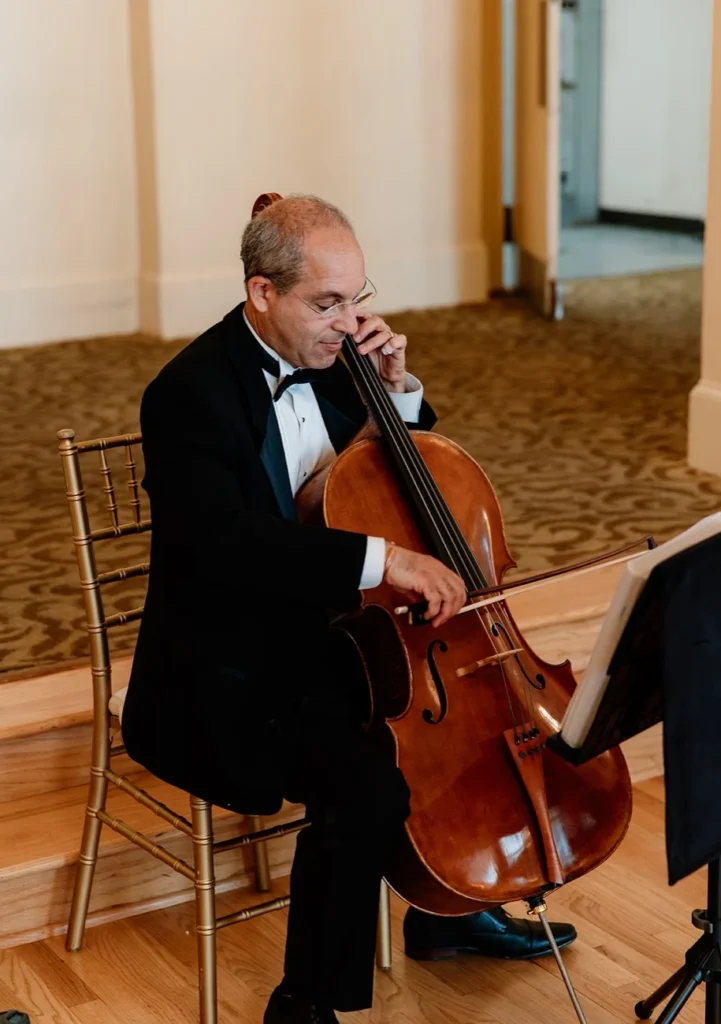
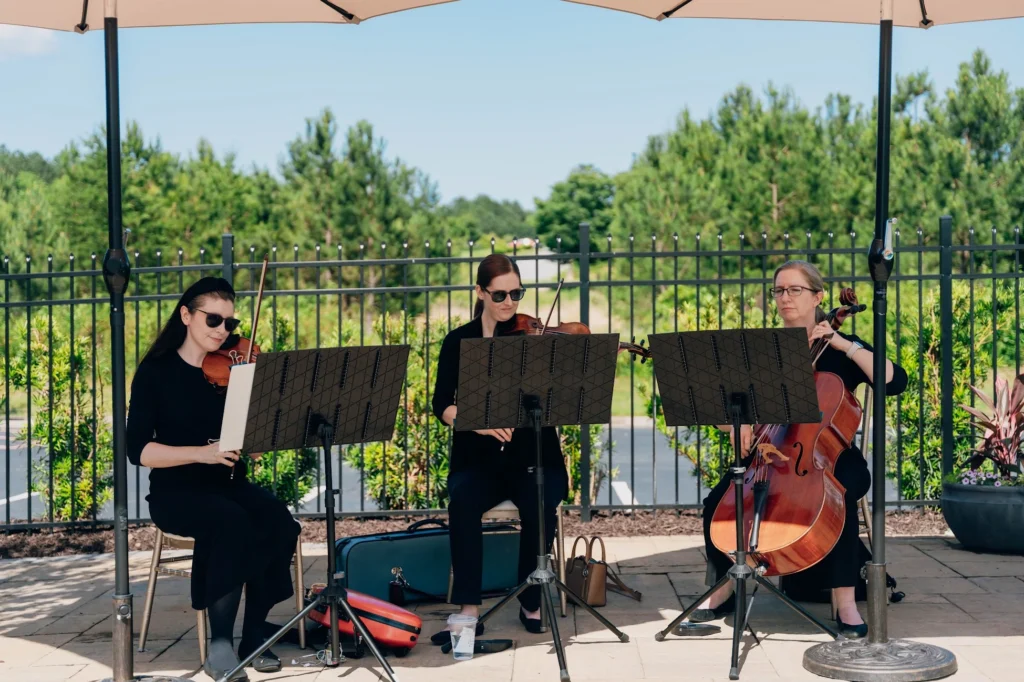
Eyo Performers: A Rare But Grand Yoruba Display
Though more common in festivals than weddings, some Lagos-based couples have incorporated Eyo performers into their ceremonies. Dressed in all-white regalia with distinctive hats and staffs, Eyo performers add a regal and historical element to the event. Their presence is dramatic and symbolic, often reserved for very high-profile celebrations.
Cultural Praise Singers and Oriki Chanters
Especially popular at Yoruba weddings, Oriki chanters (praise poets) recite poetic praises of the couple’s lineage. These performances:
- Honor family roots
- Recognize ancestral achievements
- Connect the couple to their cultural legacy
Praise singers are also common in Hausa weddings, where traditional griots use poetic verses and local instruments to serenade the couple and bless the union.
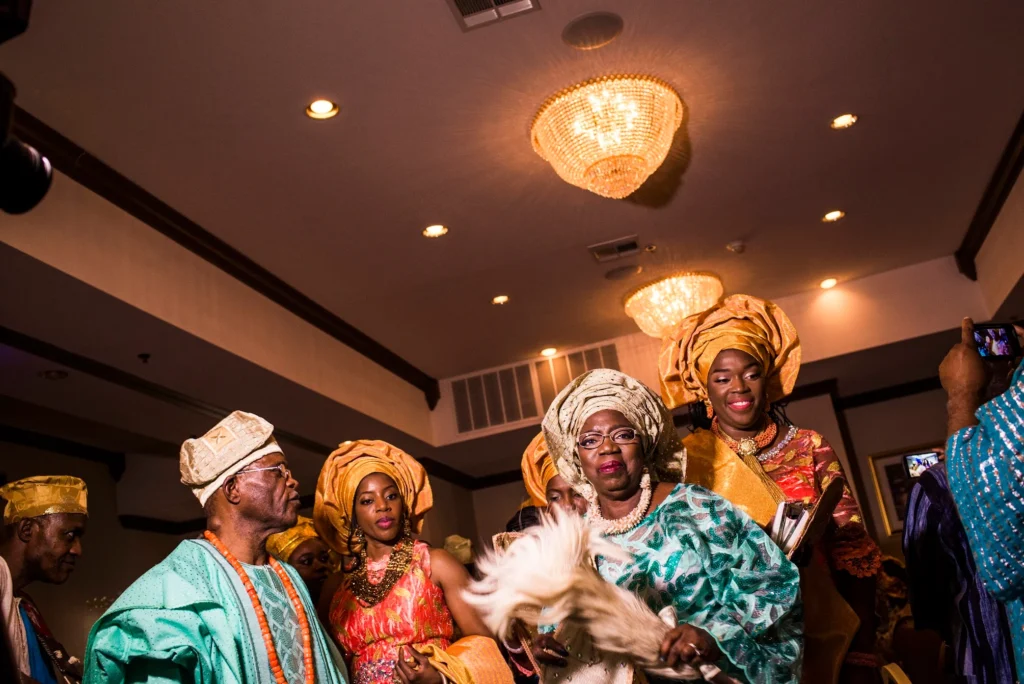
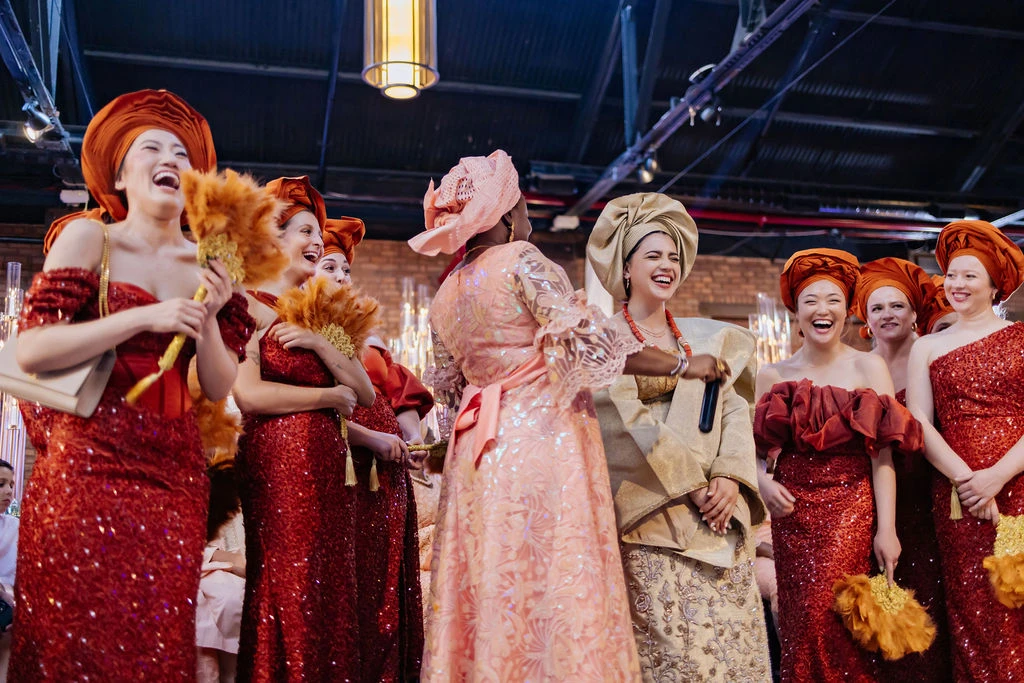
Final Thoughts: Infusing Tradition into Every Moment
The right entertainment vendors can turn your wedding into a rich cultural experience—one that reflects your heritage, entertains your guests, and honors your families. From the beat of the talking drums to the elegance of traditional dancers, every element of entertainment should feel intentional and meaningful.
Whether you’re planning an Igbo, Yoruba, Hausa, or multicultural celebration, working with vendors who understand your traditions will elevate your entire wedding experience. Explore more ways to bring culture and tradition into your wedding day? Our blog is filled with expert planning tips, cultural insights, and inspiration for modern Nigerian weddings. Read about more wedding planning tips here.
